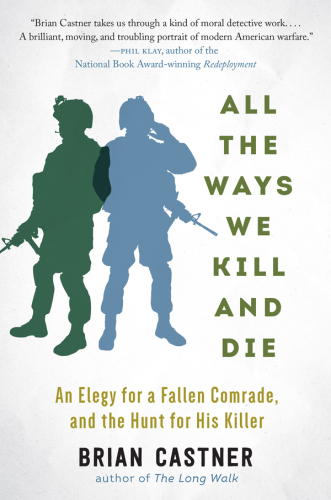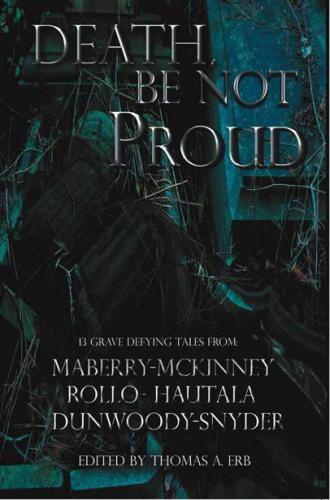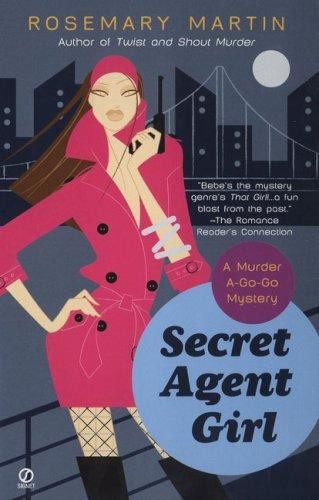oleebook.com
All the Ways We Kill and Die: A Portrait of Modern War de Castner, Brian
de Castner, Brian - Género: English
Sinopsis
The search for a friend's killer is a riveting lesson in the way war has changed now.
The EOD—explosive ordnance disposal—community is tight-knit, and when one of their own is hurt, an alarm goes out. When Brian Castner, an Iraq War vet, learns that his friend and EOD brother Matt has been killed by an IED in Afghanistan, he goes to console Matt's widow, but he also begins a personal investigation. Is the bomb maker who killed Matt the same man American forces have been hunting since Iraq, known as the Engineer?
In this nonfiction thriller Castner takes us inside the manhunt for this elusive figure, meeting maimed survivors, interviewing the forensics teams who gather post-blast evidence, the wonks who collect intelligence, the drone pilots and contractors tasked to kill. His investigation reveals how warfare has changed since Iraq, becoming personal even as it has become hi-tech, with our drones, bomb disposal robots, and CSI-like techniques. As we use...
Libros Recomendados - Relacionados
Reseñas Varias sobre este libro
I always struggle when rating and reviewing non-fiction. I argue with myself about what it is I'm actually rating. Am I rating the story/material? Am I rating the research? The writing or prose? The flow? How it made it feel? All these questions normally lead me to slapping some stars on the rating and skipping the review.
With this book, Castner ticked all the boxes. The research, the flow, the story/material covered, the writing quality, his approach to the material. He also balanced a sensitivity for the lost and their families with his own personal experience and feelings.
This book is exactly what the cover says it is, An Elegy for a Fallen Comrade, and the Hunt for His Killer. But it's also more than that. It's a fresh look at how we go to war, and the ways in which we approach it that are different today than they were even 10-15 years ago. It's a salute to the EOD community, and the ways in which that community tries to deal with the loss of any one of its own, supporting not only each other, but each other's families. And it's a well-written record of one man's journey through his personal emotions around all of those things. Well done. 1 Matthew Komatsu81 2
*This review originally appeared on The Millions*
The enemy knew he could not defeat us on our own terms. The conventional battlefield was ours, the sky as well. So they made us bleed one body at a time limb by limb through the use of handmade bombs. If there is one tribe of the military that knows this tactic best, it is the explosive ordnance disposal (EOD) technicians charged with combatting it. Brian Castner spent eight years leading EOD teams, including two tours in Iraq. The harrowing aftermath of that period of his life was well-told in his memoir The Long Walk; his latest work of nonfiction, All the Ways We Kill and Die, continues the memoirs narrative while displaying Castners considerable talent for both in-depth reportage and more imaginative forms.
Castner opens the book with a prologue that imagines the detonation of an IED in Afghanistan from the Taliban perspective a detonation, we learn a few pages later, that takes the life of his friend and EOD comrade Matt Schwartz. Castner, five years out of uniform and now a writer and freelance journalist, asks the question the book seeks to answer: Who killed Matt Schwartz? From there, the narrative loops in ever-widening arcs through a structure that roughly mirrors an EOD teams post-blast actions. Collect the dead. Tend the wounded. Gather evidence. Hunt. Remember.
If there is risk inherent to the structure of All the Ways We Kill and Die, it is that its polygamous marriage of imagination, memoir, and reportage runs the risk of throwing off a genre-monogamous reader. Theres as much for the armchair military history buff in Castners exploration of IED technology and tactics as there is for fans of literary nonfiction. The early chapters are fairly traditional narratives, Castner retracing the impacts of personal losses ranging from his dead friend to maimed comrades. But by Part III of the book, Castner must link disparate narratives from both Iraq and Afghanistan while keeping an eye on how he imagines a kind of IED archetype, this Engineer he suspects took Matt Schwartzs life. The surreal rhythms of a drone pilot, a firefight documented through passages of military Internet relay chat these are the disorienting signs of a disappearing center, as Part IV reveals how we hunt and kill.
The book is not a cut-and-dried war story; its conclusion is appropriately ambiguous considering the open-ended nature of the wars my generation has fought. Novels and memoirs by service members that address their time in Afghanistan or Iraq have not benefitted from the sense of closure granted veteran writers of World War Two, or even Vietnam. Where writers Joseph Heller (Catch-22), Eugene Sledge (With the Old Breed), Tim OBrien (Going After Cacciato) and Phil Caputo (A Rumour of War) could look back at the U.S.S. Missouri and the Fall of Saigon with respective clarity; novelists Matt Gallagher (Iraq, Youngblood) and Elliot Ackerman (Afghanistan, Green on Blue) need only peruse the Internet for unnecessary reminders that both wars drag on today. Memoirists have fared similarly. Both Brian Turners My Life as a Foreign Country and even Castners The Long Walk could only conclude by narrowing the lens to a hyper-personal focus. A former soldier lies in bed. A former EOD officer performs therapeutic yoga. There is no definitive ending when the events that shaped your story are still unfolding.
Long and Messy and Gray is the books narrative climax, and details the lifeline of an EOD troop turned lethal contractor whose name Castner redacts to M_____. Highly fragmented, but crafted so as not to bewilder, its nearest cousin is that brilliant piece of Vietnam writing, Illumination Rounds from Michael Herrs Dispatches. And it is the perfect final lift to a bracing narrative. George Packer noted in his New Yorker essay Home Fires that fragments are perhaps the most honest literary form available to writers who fought so recently. I contest the efficacy of a word honest in this context; had Packer applied the word effective, the statement would prove more meaningful. Long and Messy and Gray might watershed the most effective personal war narrative structure Ive encountered; the denouement that comes in Part V is necessary, but its this chapter that is most compelling.
All investigations, war-related or not, begin with a simple question and best of intent. But as Serial showed us last year, building a complete picture is about sorting through the puzzle pieces and assembling the mosaic as the meaning of each fragment appears. If, M____, one returns to war dozens of times, the narrative must necessarily shatter each time. Within this frame, Castner shares the same creative space as Serials producer, Sarah Koenig. Certain pieces belong together, neatly assembled for the reader to observe. Other pieces, however, belong in a pile, appearing as they are overturned. Theres an art to this type of transient work, a sense of structural mastery just beyond the page that is all the more inspiring when you consider that both Castner and Koenig began with just one question: Who? The best writers fully admit that the best stories reveal themselves along the way. The best stories, as it turns out, might end up answering a different question altogether.
Who killed Matt Schwartz is the least of the questions answered within the pages of All the Ways We Kill and Die. Castner captures the complex push and pull; the cost and reward; and a fully formed image of what its been to be both in the middle, and on the periphery, of The Forever War. Despite this wide lens, however, Castners real task is to tell an intensely personal story. In the closing chapter, we find him walking the forest with his children, pointing out roots, ruts, and creeping vines that threaten their peaceful stroll. I imagine him pausing, pushing a knee into the rich brown earth and pointing ahead once more: danger there.war-books1 Derek92 2
This book was welcome relief after being underwhelmed by "Billy Lynne's Long Halftime Walk". The title of this book alone grabs your attention. This book is along the lines of "The Things They Carried". It starts out with the death of Castner's EOD comrade in Afghanistan. You go inside a military funeral which was very heart wrenching.
Also the horrors of IED warfare are on display in this book. Castner vividly conveys this to the reader. You also follow wounded EOD warriors on their long road to recovery.
I would've given this book five stars except "the hunt for his killer" is not very riveting and the investigation is more of a personal journey and depiction of warfare rather than a true investigation. I will be checking out "The Long Walk" after this because EOD techs are the quite professionals and almost no books have been written about these brave men and women ( I think brave as an adjective falls incredibly short of describing EOD techs, possibly no word in the English language exists to represent their sense of duty and commitment).
1 Sandi VanAuthor 7 books13
Brian Castner is a veteran of the Iraq war, a former EOD officer turned writer, who is able to tell stories in a way that will greatly expand your knowledge and understanding of war, will deepen your appreciation for the nuances of military culture, and will tear your heart to pieces. All the Ways We Kill and Die seeks to find the man behind Castners friend/EOD brothers death by taking the reader on a multilayered journey into modern warfare. It isnt a dry, science heavy account. There is science, yes, and military jargon (with a handy glossary in the back), but the story is much deeper than all of the acronyms. Its an exploration into the faces behind various aspects of war, full of deeply personal accounts that will change the way you watch the news - change the way you view veterans and their families. Every American should read this book.book-club1 CHC9457
I am not normally a fan of books written by soldiers about their time in battle, because the writing tends to be very dry and bland. Brian Castner's book caight my eye because the main plot was more anout finding a terrorist killer, than a recitation of battles fought.
This story focused on Matthew Schwartz, an EOD tech who was killed by an improvised explosive device (IED) that exploded under his truck. The author gives us a background of Matthew Schwartz's life - he was a soldier, a husband, a father, a friend - and intertwines it with his own journey to find the facts.
Sometimes the story rambles, but overall it does an excellent job of taking the reader through the investigation to find the mastermind of the IEDs.kindle-books1 Eila Mcmillin151
There are parts of this book that are very raw and real. The prose throughout has really wonderful thick description which adds to the overall richness of the story, however there are parts of the book that really just do not feel fully integrated with the general arch that the author is focused on portraying. Some of the detail about the use and operation of drones just seemed a bit indulgent for no real purpose.
The author, and many Americans in general, lacks a certain amount of critical introspection insofar as the globalized and complex nature of postmodern warfare and how a myriad of US policy choices help to provide anti-American ideological framework for all of the worse pathologies of violence in Afghanistan and Iraq. It's particularly frustrating in this work because Castner does in some parts of the book show a deeper understanding of how ongoing occupation breeds insurgency, as well as the role of poverty and social inequality in providing human fuel to the military industrial complex machine. So then the lack of ability to fully look into the mirror regarding a critical understanding of the conflicts in Iraq and Afghanistan feels a bit pulling punches.
And while the edition I read had the subtitle of "An Elegy for a Fallen Comrade, and the Hunt for His Killer," apparently there are other editions that have the subtitle "A Portrait of Modern War," and that kind of subtitle I find rage inducing to the point of automatic docking of points.
I will give Castner this - there is a tendency in the writing community to not give strong, workable feedback when it involves someone's personal experience of a particular traumatic nature. More so when the writer is associated with the military. So I would argue that some of the editing process work that could have really taken this book from alright to downright fantastic was lacking; my guess is that Castner's editors and pre-publication readers suffered from that culturally obligatory deference and the finished product suffered as a result. 2.75/5. Okimura117075
All the Ways We Kill and Die: A Portrait of Modern War
A book about US armed forces explosives ordnance technicians in Iraq and Afghanistan.
Its not just about derring do, shooting and heroic exploits but also about the families of the soldiers; some killed in action, some disabled single/double/triple amputees; how the wounded and the families and their colleagues cope. It is also the story of a cat and mouse game bomb maker being hunted by the intelligence as well as military, and how the bomb makers target the EOD techs as well.
There are chapters on contractors at one stage the number of contractors was more than the number of regular troops. And civilian biometric experts with the beginnings of AI, and the introduction of unmanned aerial vehicles, robots to assist EODs all in one of the poorest countries on earth.
The writing is almost poetical how do military personnel write that way?
God invented EOD technicians so that firefighters can have heroes
This book reads well, is of interest to those that military history and want to understand that modern war although based on infantry with rifles, is also a lot more than that. I agree that although non-fiction; some of the stories could be a movie by themselves.
4.5 stars
Bonnie_blu897 24
Castner presents an incisive look into the world of military EOD personnel and the horrible conditions in which they operate. This book rejects political correctness and places the blame for their deaths and injuries squarely on the upper echelons of the military and government. His search for the killer of his friend rips away the "glossy" masks that have been used to cover up the ridiculous demands placed on U.S. troops. And yet, the war in Afghanistan goes on and continues to decimate physical, mental, and spiritual lives without any clear goal. 16 years and counting. Either go all in and finish the job (after, of course, deciding what the job is), or get out. Stop wasting lives. Full disclosure: I am not anti-military. I am pro-military and have always strongly supported the troops.history Helen-Louise272
Brian Castner came out of the military with a new profession, that of writer. But his military background has stayed with him, part of his bone and blood and soul. This book traces his hunt for the "why and how" behind the death of a friend and [military] brother from an IED. I would not do justice to the book if I tried to summarize it, but if you serve in Iraq or Afghanistan or you know someone who did, or if you have followed our military and our wars over the past 20 years, you will find this book gripping and in a way heart-breaking. I rarely give a 5-star rating; I'd give this one more if there were more available.2017 Chad Manske920 28
When author Brian Castners friend Matt Schwartzan explosive ordnance disposal (EOD) techniciandies when his JERVV hits an improvised explosive device (IED) on Jan 5, 2012, he consoles the widow but decides to go much deeper and peel back the killers identity. His exploration uncovers and relates to readers the EOD subculture, the drone operators subculture and a search for answers in a seemingly senseless quest for mission accomplishment amidst wars travails. This 2016-published work tells us much about heroes and selfless service of a career field whose fatality rate during the height of Afghanistan and Iraqs wars exceeded others. Pablo547 3
Serious book, intense topic and very much what you would expect to find in a book about explosive ordnance disposal technicians. That being said, after a strong opening, it very much became the story of injured techs and the idea of the evil super bomb engineer. We engage a bit in bomb forensics but there seemed very little insight into how to actually chase down the mad bomb maker. A difficult project surely, but wasn't that what the book was about? 3 stars for sincerity and bringing the topic to light. politerror war Donna A.53
All The Ways We Kill and Die
The title really says what we humans are capable of doing to each other in the name of whatever deity we worship, Allah, God etc.., and so forth. The personal cost of war we have paid in the men & women we send to war. The price is too high in my opinion but, you know what they say about opinions! I couldnt put this book down, even for sleep. Janice Sheufelt115
A very intense book, highly recommended, an excellent way to learn about and appreciate our people serving in the military. library Alisha Falberg83 1 follower
Interesting and well written, but not my kind of book. PS very tempted to give 2 stars based on his very poor and untrue description of my hometown, but tried to be less biased
Autor del comentario:
=================================

![descargar libro Principle Decisions [ed.: 1]](imglibro/thea-belmont-principle-decisions-ed-1.jpg)










